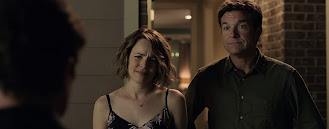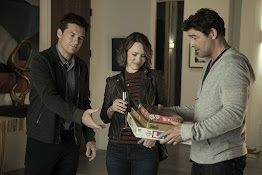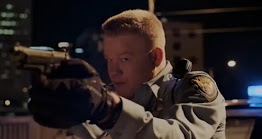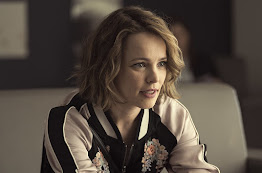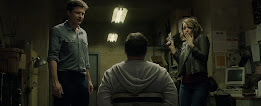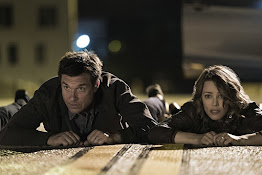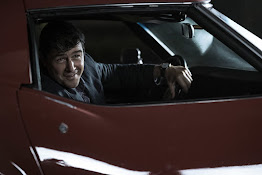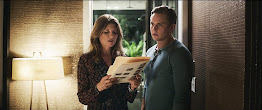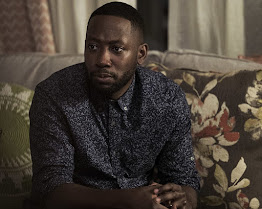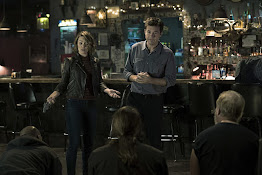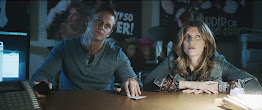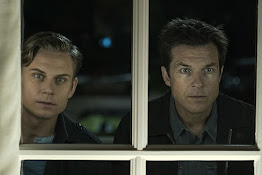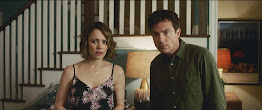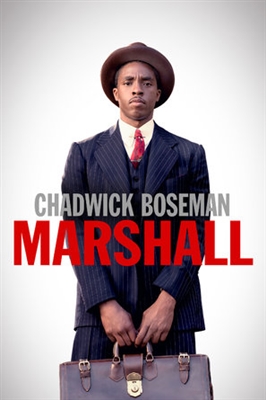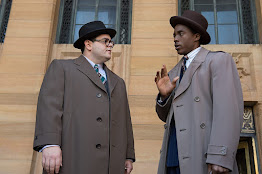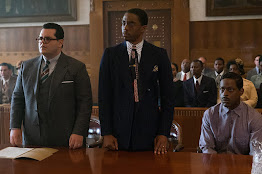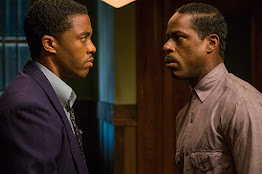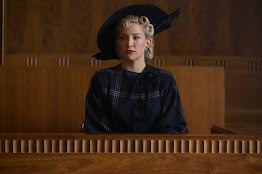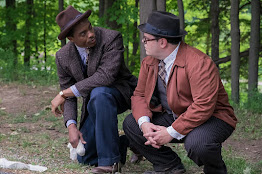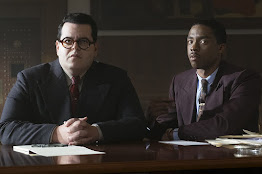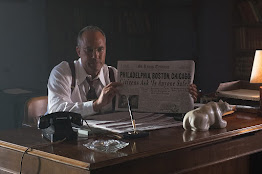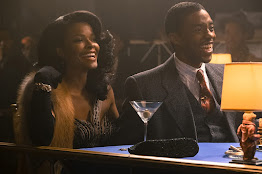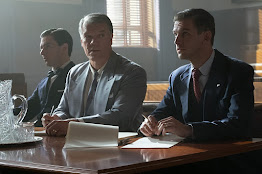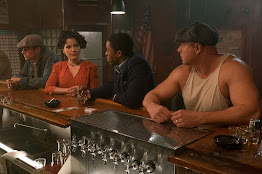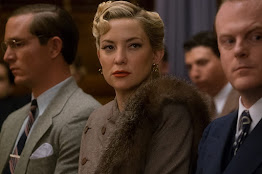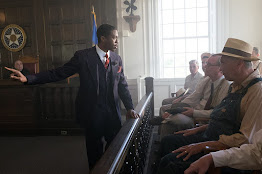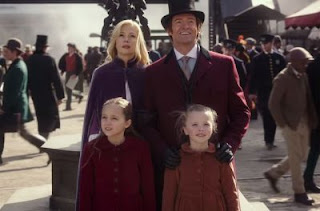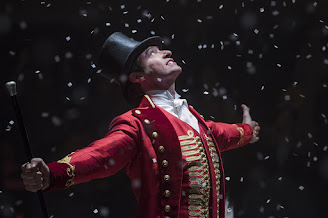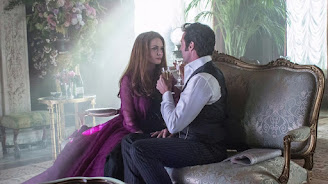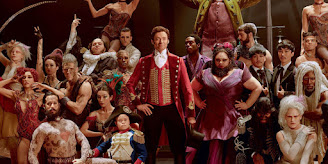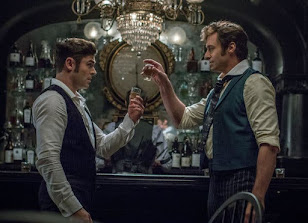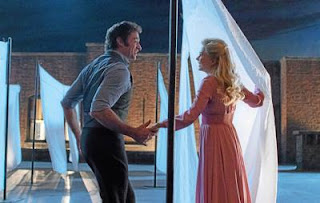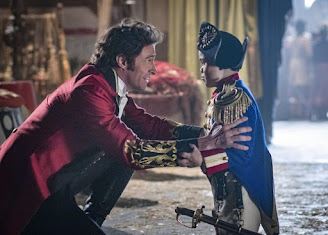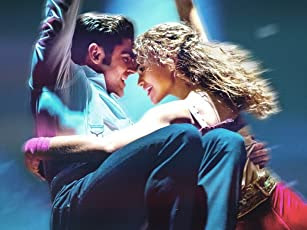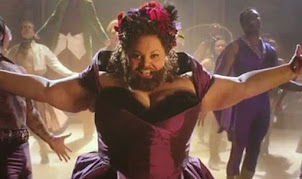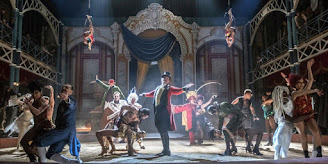
When making sequels, one of the hardest elements in regards to doing so is being able to top the original work that came before it while still managing to be surprising. This is especially hard when it comes to making sequels within the genre of comedy, as the filmmakers must find newer ways to retell the same jokes without them feeling stale or repetitive the second time. Released in 2001, the first Super Troopers worked with audiences mainly because it was both silly and fresh with characters such as the goofy highway patrolmen, who were so ridiculously over-the-top that audiences couldn't help but find enjoyment out of the experience of watching it. While that film wasn't perfect by any means and ended up often being a hit-and-miss affair, it was more entertaining and funny than not. Fast-forward 17 years later with the release of Super Troopers 2, the much-anticipated sequel to the original cult-classic offers more of the same style of dirty jokes, crude humor, and forceful satire that the first contained which made it a hit with audiences. Rather than the sequel being a stronger film than its predecessor, it feels as if the wait for the second film was ultimately wasted as Super Troopers 2 despite some generally funny moments, feels like far less effort went into making it than what the first movie carried. While that film wasn't perfect, it worked much better in regards to both story-structure and character development compared to the sequel, that often feels uninspired and cruder with its humor.
Picking up 17 years at the events of the first film, Super Troopers 2 brings back all of the key cast members from the first movie with the group of quirky former Police officers facing a dilemma when both the mayor and residents of a French-Canadian town on the US border object to an annexation by the US. Reenlisted as regular Vermont State Troopers (Played by Jay Chandrasekhar, kevin Heffernan, Steve Lemme, Paul Soter and Erik Stolhanske), they find themselves being called in to set up a Highway Patrol station in the disputed area. Given the legacy of the first Super Troopers as well as the long wait that fans of that film had to endure in waiting for a sequel, Super Troopers 2 should be a much stronger and more satisfying film than what it ultimately ends up being. The plot has layers and themes that mirror today's political issues such as immigration and border patrol, but treats them as afterthoughts rather than properly exploring them with the story. The sequel feels as if the filmmakers didn't really have an idea on where to take the characters from the previous film, and chose to just slap together a paper-thin plot while turning the crudeness of the humor on maximum. This is a sequel that doesn't feel like it was handled with the proper care nor given the thought its plot required in order to make it anything more than throwaway mild entertainment at best. The main characters from the first film are brought back here but there's no real purpose or arc for them to fulfill in the story rather than spewing out gags, that range from being undeniably silly to borderline offensive. The biggest problem with the sequel is how irrelevant it feels with the script having no particular voice or message within its absurdity that audiences can take with them long after the film is over. Super Troopers 2 offers fans of the first film more of the explicit raunchiness and crude humor that made that one unexpectedly fun to watch, but lacks the energy, the effort, the pulse, and heart that its predecessor had which made it more well-balanced in comparison to what's presented here. Besides the return of the original main cast, there isn't much of a reason that fans of the first film should be rushing out to see the sequel, nor a compelling enough reason for it to exist in the first place. One clearly see's why the filmmakers didn't produce a sequel to the first Super Troopers for so long as there's no different direction to take the characters nor its plot with it ultimately should've been left alone as one standalone comedy.
Whereas the films story and overall presentation largely disappoints, the return of the main ensemble cast stands as being one or the few main highlights of the sequel. All of the first films key actors are back and manage to bring much of the same energy and enthusiasm for playing their characters as well. The chemistry is still present along with their reliance on each other to create more mayhem on the screen. While all five of the main cast deliver fun performances, the ones who steal the show are Jay Chandrasekhar and Kevin Heffernan. Chandrasekhar shines as Senior Trooper Arcot Ramathorn, a veteran of the Vermont State Police whose second-in-command of his barracks. Heffernan steals the show as Trooper Rodney Farva, a loud, obnoxious, ill-tempered, and arrogant radio operator and occasional patrolman who delivers some of the films crudest and mean-spirited jokes. His character comes across as appearing backwards in thinking compared to the others. Paul Soter does well as Trooper Carl Foster, the most calm and reserved of the department. Steve Lemme brings a ton of fun and energy to his role as Trooper MacIntyre with him enjoying performing pranks the most of the group. Erik Stolhanske also shines as Robbie Roto, a rookie state Trooper. In the roles of playing the state troopers, the cast does well with them demonstrating that they still have the chemistry which made them so appealing as a team in the first movie. The rest of the supporting cast give notable performances with Brian Cox reprising his role as the cantankerous commander of his Vermont State Trooper barracks, Captain John O' Hagen. In addition to the returning cast from the previous movie, the sequel brings in newcomers such as Rob Lowe as former Montreal Canadiens hockey player and current mayor of a Canadian border town in Quebec, Guy Le Franc. Lowe is effective in playing the films main antagonist with Emmanuelle Chriqui as French/Canadian and cultural attache Genevieve Aubois, whose focused on relations with the U.S with her character carrying surprising character arc of her own. Chriqui gives her character a fun and likable presence, that makes both her and Lowe fit in well with the rest of the cast. Other noteworthy supporting roles are Tyler Labine, Will Sasso, and Hayes MacArthur as the obnoxious and patriotic trio of Canadian Mounties. Damon Williams and Seann William Scott surprise as Troopers Wagner and Callaghan along with Wonder Woman's Lynda Carter in a surprise minimal role as Vermont governor Jessman, and Paul Walter Hauser as an obnoxious office manager. As a whole, the cast for Super Troopers 2 is appealing with both the returning faces along with the newer ones blending together smoothly in creating both a silly and goofy atmosphere, that tries to remain consistent with the previous film. Regardless of how one feels about the rest of the movie, the cast appears to make the most of their experience and feels as if they were having a blast playing their roles.
Directed by Jay Chandrasekhar who also helmed the first film along with co-writing the script for the sequel and playing Arcot, Chandrasekhar returns to the directing chair though his work here feels less inspired in comparison to the original. He does succeed in giving the film a nice overall look with the sequels setting taking place along the Canadian border with the camera capturing all the brightness and appeal of the mountains and trees. The humor is fast-paced with the story not leaving much room in regards to slowing down with audiences being led from one outrageous scenario to the next involving the main characters. The films atmosphere and tone remains goofy-natured with certain moments being added to the film with them serving no other purpose than to generate laughs from the audience such as the troopers stealing the mounties uniforms and pulling people over for no other reason than to prank them in ways that feel both silly and childish. Another scene that's pointless despite utilizing CGI, is the one in which the audience gets to see the character of Farva through heat vision goggles with him shown to be casually urinating and farting while screaming obnoxiously at the camera "I'm still gonna go back and get that butter tart yule log!" These moments bear no particular purpose in the film other than to just generate laughs from the audience with both end results being hit and misses. One of the key elements that helped make Super Troopers work as well as it did was the low budget feel that it carried, which allowed the cast and crew to become more creative with the film. The budget for the sequel feels larger with the location being changed but not all of the setting is properly utilized within the story as the audience ultimately doesn't get a genuine feeling that they're in Canada. As far as the films directing goes, Jay Chandrasekhar's work here doesn't feel terrible as he's able to give the film a mood and visual background that's appealing, but it mostly comes across as being a serviceable effort that feels less inspired in comparison to the original along with being unenthusiastic in regards to handling the films story with the most obvious reason being the script that Chandrasekhar's partially responsible for.
The films largest issue lies with its screenplay. Written by all five of the main actors playing the troopers, the script feels like a combination of raunchy, crude, fart jokes, and dirty humor that comes across as being more offensive and mean-spirited in comparison to the first with many of the latter coming from Farva's character. There's also humor that feels both random and forced, including a sequence involving Rob Lowe's character jiggling his exposed private parts, or much of the dialogue coming from the mounties when challenging the Vermont State Troopers. The humor in the sequel feels more thrown at audience rather than feeling natural like the first film along with the chemistry between the main cast being better with that film overall. The biggest problem with the script for Super Troopers 2 is its uncertainty on where it wants to go with its story. It half succeeds in bringing back all the key players of the first film, but feels as if it doesn't know what to do with them. The end result is a screenplay that feels both lazy and tiresome with no real purpose of existing other than the film saying that working for the state highway patrol can be both a dangerous and exciting experience. While the script for the first Super Troopers wasn't anything amazing, it at least carried a message which said that one can't fight budget cuts along with stating that both high jinks and corruption are not the same thing. That film dealt with key themes which were socially relevant around the time of its release such as Afghanistan, the Taliban, drug smuggling, and police corruption. While those themes were cemented in between the originals silliness and humor, the narrative felt more focused and gave its main characters purpose with its story. The sequel introduces themes that feel relevant to today's world such as border disputes, the annexation of land, and drug smuggling with the script often feeling like it doesn't necessarily knows what it wants to do with them. There are moments where dialogue is placed in the film demonstrating the Canadian's perspective of America with knocks aimed at their lack of understand and empathy towards education, health care, and gun control with certain characters feeling as if they've been dumbed down in the sequel to resort to crude insults or childish replies on how much America is better than Canada (Farva with some of his dialogue for example). The issue isn't that those things are referenced in the script nor shoved down the audiences throats, it's that the main characters have no real responses nor arc where they take into consideration the insults thrown at them with no questioning on whether the mounties are correct on their observations. The sequel unlike its predecessor, carries no moral compass within its mayhem along with no real arc for its characters to complete. The end result just feels like a soulless attempt at producing a long overdue sequel to a film that feels a bit outdated by today's standards, as well as the feeling that the audience that loved and supported the first film have essentially moved on.
To put it bluntly, Super Troopers 2 is a messy and unnecessary sequel to a cult classic that should've remained as being a standalone film. The sequel only manages to recycle a significant portion of the humor its predecessor carried without much thought and creativity being put into making the second stand on its own. The laughs ultimately range from being hit-or-miss with the sequel only being watchable due to the chemistry and main appeal of its cast. For devoted fans who waited years to see a sequel to the first film, they deserved a much better effort than what ultimately came out. It's a shame cause had more thought and cleverness went into making the sequel like it did for the first film, the end result would undoubtedly be more satisfying along with living up to the anticipation fans had built up for the second movie. Super Troopers 2 is a sequel that lacks a true purpose for existing and desperately wants to remind audiences about these characters and a plot that don't necessarily fit in today's pop culture atmosphere. Rather than taking the concept and reinventing it for modern times, the creative team behind the sequel opted to give audiences the first film all over again with less thrilling results. That in itself is a shame because the potential was there for the story to be taken in a newer direction while throwing nods back to the original. On the outside, the sequel looks appealing but the inside lacks the freshness, the enthusiasm, the creativity, and the heart of what made the first Super Troopers a modern comedy classic with the audience left scratching their heads in wondering why the filmmakers even bothered if they couldn't make a follow-up that's worthy of carrying the first films legacy. Truthfully speaking, devoted fans are better off just renting or rewatching the original film as it's ultimately much more satisfying.
Final Verdict: For fans of the first Super Troopers, Super Troopers 2 proves to be a royal disappointment with it barely passing as forgettable entertainment that lacks the charm, wit, and energy of its predecessor.
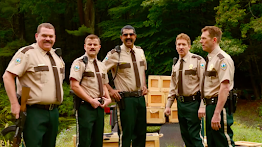
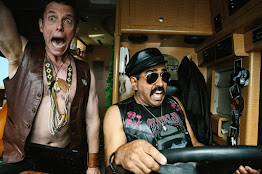
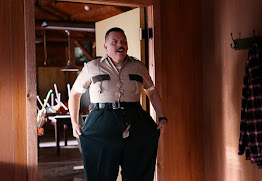
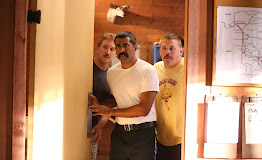
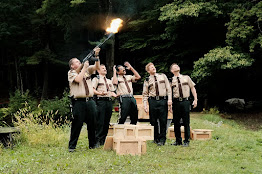
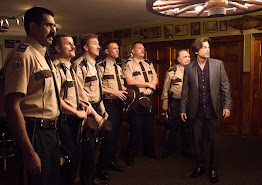
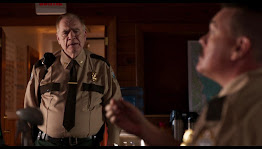
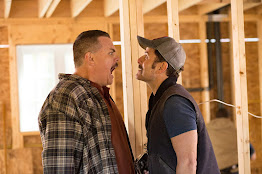
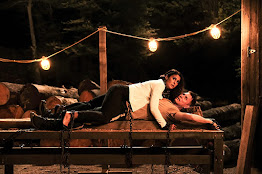
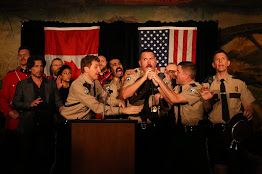

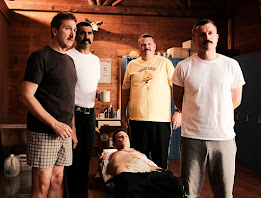
![Front Standard. Game Night [DVD] [2018].](https://pisces.bbystatic.com/image2/BestBuy_US/images/products/6232/6232700_sa.jpg;maxHeight=640;maxWidth=550)
